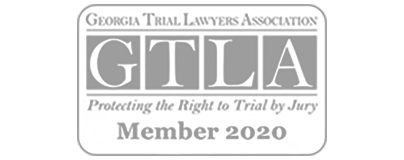Home | Glossary of Personal Injury Terms | Birth Injuries
Birth Injuries
Experiencing a child’s suffering is one of the most heart-wrenching challenges a parent can face. Tragically, for some families, this anguish begins even before or during birth. Birth injuries represent a complex intersection of medical negligence and personal trauma, often leading to legal claims against healthcare providers responsible for the care of both mother and child.
What Is a Birth Injury?
A birth injury encompasses any physical trauma inflicted on the mother or newborn during the labor and delivery process. Unfortunately, many of these injuries stem from preventable medical errors.
The potential defendants in a birth injury lawsuit can be numerous, including:
- Obstetricians and gynecologists
- Hospitals and healthcare facilities
- Nursing staff
- Surgical teams
- Anesthesiologists
- Technicians involved in the delivery process
Establishing liability requires thorough investigation by a knowledgeable legal team, often in collaboration with medical experts who can shed light on the circumstances leading to the injury.
Common Causes of Birth Injuries
A child may sustain injuries during birth in various ways. Many of these injuries can be averted through appropriate medical practices. Key examples of negligence that can lead to serious injuries include:
- Neglecting to monitor fetal distress
- Failing to assess the mother for potential birth defects
- Ignoring maternal health issues that could complicate delivery
- Oxygen deprivation during labor
- Errors in surgical procedures
- Mismanagement of delivery instruments, such as forceps or vacuum extractors
- Incorrect medication dosages
- Failing to timely perform a cesarean section when necessary
Healthcare professionals must prepare for various emergencies due to the complexities involved in labor and delivery. When they do not uphold the standard of care, the consequences can be devastating, resulting in lifelong disabilities for the newborn.
Consequences of Medical Negligence During Labor and Delivery
The ramifications of medical malpractice during childbirth can lead to serious, sometimes permanent, disabilities. Common birth injuries include:
- Cerebral palsy
- Hypoxic Ischemic Encephalopathy (HIE)
- Spinal cord injuries
- Brachial plexus injuries
- Intracranial hemorrhages
- Bone fractures
Even with advancements in medical technology, many injuries during delivery are still preventable. The impact on a child’s development can be profound, leading to a range of cognitive and physical challenges.
Identifying Birth Injuries
Identifying whether a child has sustained a birth injury can be challenging. Symptoms may vary based on the type of injury but often include:
- Breathing difficulties
- Swelling or bruising
- Seizures
- Weak reflexes
- Abnormal skin color (blue or pale)
- Low heart rate
- Signs requiring resuscitation
- Developmental delays as the child grows
Parents may not be aware of complications that occurred during labor, and some symptoms may not present until later in life. If you suspect a birth injury, immediate medical evaluation is crucial for diagnosis and intervention.
Evaluating the Value of a Birth Injuries in Georgia
The potential compensation in a birth injury claim can vary significantly based on several factors, including:
- The severity and permanence of the injury
- The impact on the child’s future development
- Medical expenses incurred
- Loss of income for parents due to caregiving responsibilities
- Changes in the child’s quality of life
Legal experts will assess individual cases to determine the full extent of damages, often consulting with specialists to project future medical needs.
Types of Recoverable Damages in a Birth Injury Claim
In cases of medical malpractice, families may seek compensation for both economic and non-economic damages.
Economic damages include:
- Medical costs (past, present, and future)
- Rehabilitation services
- Special educational programs
- Lost earnings potential for the child
Non-economic damages cover the emotional toll and suffering endured, including:
- Pain and suffering
- Emotional distress
- Loss of a normal childhood experience
- Reduced quality of life
To pursue a claim, it is vital to act within the legal timeframe established by state law. In Georgia, the statute of limitations for medical malpractice claims is typically two years, though extensions may apply for minors or cases where the injury was not immediately discoverable.

GEORGIA PERSONAL INJURY LAWYER NEAR ME
Taking the Next Steps
If your child has experienced a birth injury, seeking legal counsel promptly can help navigate the complexities of a potential claim. Experienced birth injury attorneys can provide valuable insight and support during this challenging time.
For those in Georgia, reach out for a free consultation to discuss your situation and explore your legal options. You don’t have to face this journey alone; help is available.
GET A FREE CASE REVIEW
PRACTICE AREAS
Frequently Asked Questions?
Do I need a personal injury attorney?
The Jewkes Firm is well-versed in effectively challenging major insurance companies on your behalf to secure the highest settlement permissible by law. Our primary objective is to ensure your optimal recovery. It is only after this point that we assess the worth of your case.
What is the deadline for filing an injury case in Georgia?
The timeframe for filing an injury case, also known as the statute of limitations, can vary significantly. As per OCGA §9-3-33, you are granted a two-year period from the date of your injuries or the passing of a family member to initiate your personal injury claim.
What is the cost to hire a personal injury attorney?
There is no upfront cost associated with hiring a personal injury lawyer. Our fees are based on a percentage of your settlement, meaning you only pay if we successfully recover compensation. Our top priority is ensuring your well-being and helping you return to your normal life.
What damages can you recover from a personal injury?
A personal injury lawyer aims to establish negligence and seek restitution for the harm caused by the liable party. Additionally, you may be entitled to compensation for funeral costs, medical expenses, and income lost if you are a family member of someone who died as a result of an injury.
Free Case Evaluation











